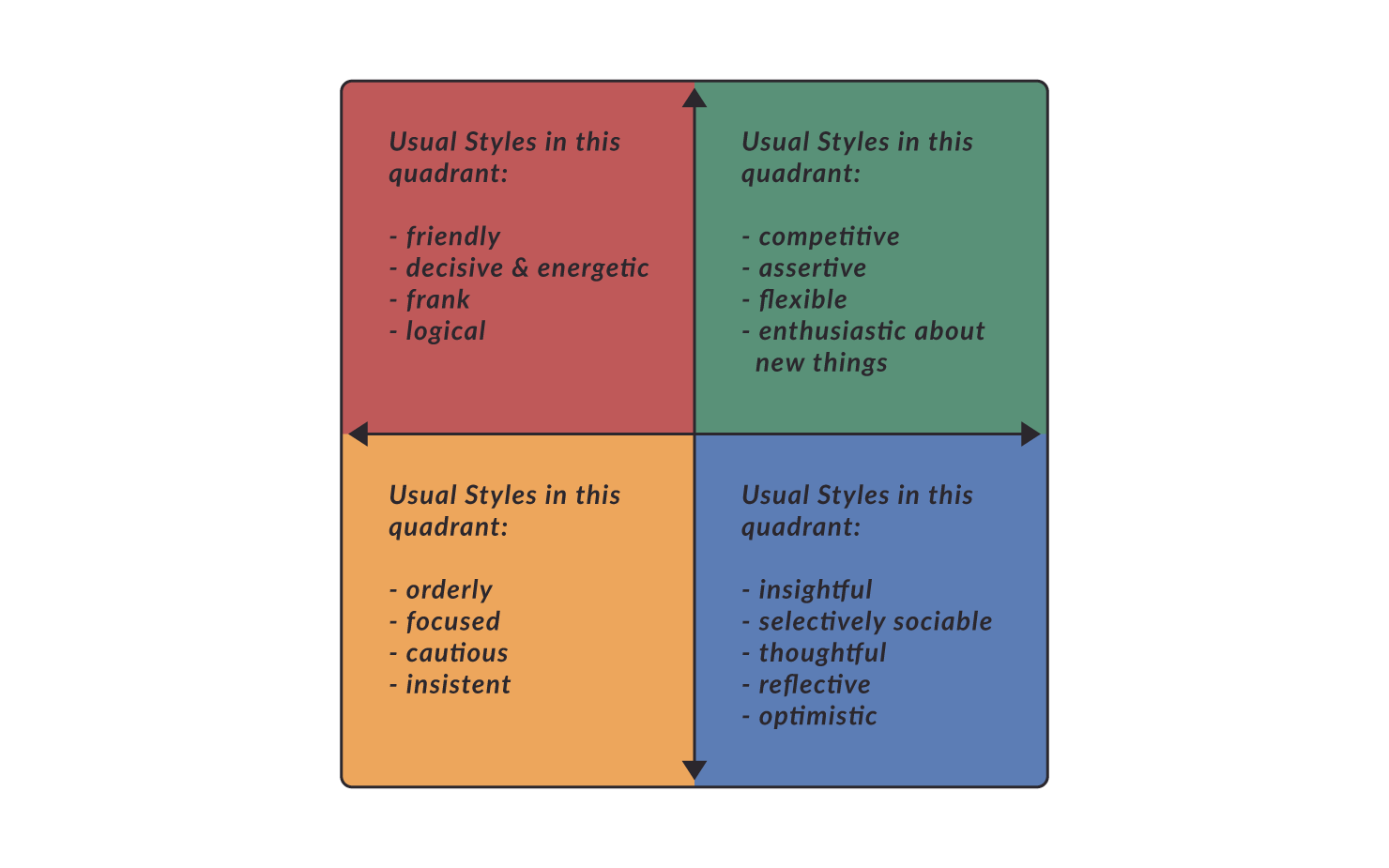
Transforming your everyday relationships... Part 2
If you haven’t already check out Part 1 in this series.
I am sure you have found yourself in situations where you wondered why people were behaving in a certain way, and you got annoyed, bored, puzzled or upset.
I’m thinking of discussions when some people did all the talking and some didn’t say anything, of being in a team where the appointed leader didn’t lead as you expected, or working on a project team where some people kept introducing new ideas and others were wanting decisions and action. Or how about in your family, where one member always wants to do things together and others don’t, or one wants debates about everything and others don’t engage.
Your Birkman Map / Grid gives you the clue to what is going on! People are pretty evenly spread around the Map so you will see huge differences: more extrovert, more introvert, more task-focused, more people-focused - and, when those broad dimensions are combined, some more specific usual behaviours relating to each colour.
Look at the Usual Styles below, and even with these simple words you can see why people behave very differently. They are generally not being awkward or difficult, just different in their approach to things. You can quickly see that it will be the diagonally opposite colours who have most trouble with each other, because they do the opposite: reds decide quickly, blues think and reflect; greens assert themselves and introduce change, yellows focus on their tasks with order and caution.

I have found it helpful to observe the people around me and notice how they seem to approach things using the framework of the Map / Grid. Often, I can then relate to them better. If I reflect back to them what I guess to be their style, they will often tell me more and that helps me build a relationship with them; I may also tell them that I go about things a bit differently and that helps them understand me better.
Something like this…
Me: “Looks like you like to decide quickly and get on with things?”
Them: “Yes, I hate too much talking and no action - its so frustrating!”
Me: “Well, I’m one of those people who explores the options thoroughly so that I’m more confident we’re making the best decision. I’ll do my best not to frustrate you but it’ll help if you allow me more thinking time”.
In a family, it’s great to have conversations about differences; they can really help you get along much better.
Maybe you are going out shopping with your sibling. You are expecting to be out for 2 hours and to focus on finding the things you want to buy and then having a coffee together before heading home.
Your sibling, keeps making suggestions about other places you could go and you resist these because you know what you want to get and where. You then meet a bunch of your siblings’ friends and suddenly it’s “Hey, let’s all go for lunch together!” By this time you’re quite annoyed - this is time for you and your sibling, and there’s stuff you want to buy - it’s all planned. Your sibling has clearly not had the same plan, and maybe no plan at all in their head, they are just responding to what happens quite happily. Looks like you have yellow usual and he / she has green!
Practice talking out expectations before you go out so you’re both clear. If you have experienced times when you have clearly been ‘at odds’ with each other, try discussing them at a time when you can do it light-heartedly and non-judgmentally.
“Remember that time when I got so annoyed with you while we were out shopping?… I really wanted to spend time with you and to get my shopping done, but you were so happy when we met your friends and wanted us all to hang out together… I was upset you didn’t ask me if I was ok with that and you thought I was just being difficult…” Share how you each felt and what would have made it a better experience for you.
I appreciate you may not be very confident about having these kinds of conversations, but have the courage to have a go - even a little bit of self-disclosure can make a huge difference! And of course, if you both have your own Birkman data to share that will make it much easier too.
